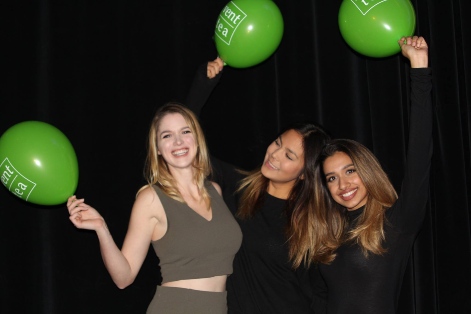Back when she was still in high school, Sarah Fennessey, BA’16, went through a harrowing experience. She was on a Tall Ship voyage that capsized in the Atlantic Ocean and she was lost at sea for two days.
Time well spent with a therapist in Montreal helped Fennessey process the PTSD that she experienced. And she realized that having an hour a week to just talk to someone about some of the other things that were causing her stress was helpful – but not to the point where she could justify spending $100 an hour on it.
In a course taught by McGill psychology professor Richard Koestner, Fennessey learned of a study that indicated that many people can receive a therapeutic benefit from talking with an empathetic listener, a benefit similar to what they would experience with a trained professional. This didn’t apply to people facing profound mental health challenges, but rather to people wrestling with the ordinary anxieties and sources of stress that many of us contend with at one point or another.
So Fennessey came up with an idea to bring together sympathetic listeners with those who just needed to, y’know, vent.
And so Vent Over Tea was born, a platform that puts two strangers together so that one can get things off their chest, while the other listens in an attentive and non-judgmental way.

Fennessey (photographed, on the left) posted the idea on the Facebook page Spotted McGill during a typically stressful exam period four years ago. It resonated with Chloe Chow, BSc’15 (second from left), who has had her own experiences with depression and anxiety. She contacted Fennessey with an offer to help. Nimra Khan, BSc’15, MSc’17, BSc’18 (right), was an early volunteer who soon became deeply involved, setting up infrastructure, managing volunteers and workshops. The three McGillians, who all studied psychology at the University, are the co-founders of Vent Over Tea.
While working on an internship, Chow shared the idea for Vent Over Tea with her supervisor, clinical psychologist Stephane Bensoussan, BSc’90, MA’92. Bensoussan was quickly won over, and helped set up training for the program. “He has seen how many people seek out therapy when they, in fact, just need empathetic listening,” says Chow.
In a recent interview on CBC Radio’s The Sunday Edition, Fennessey defined venting as “talking about everything that’s on your mind, the thoughts that keep you up at night.” In short, the kind of uncensored conversation you might feel more comfortable having with a compassionate stranger than with someone you know, especially if that stranger is offering you their full, undivided attention.
It’s simple to set up a meeting. Fill out an online form and you’ll receive details of the café at which to meet, and who to look out for (each person pays for their own beverage). Of course, these days, meeting in a café isn’t an available option – and the reason behind that is itself a potent source of anxiety.
Khan says that Vent Over Tea is operating via Skype and phone for the moment. “It’s a stressful time for everyone right now, so our services may be needed now more than ever.”
Sometimes users want to get together with the same volunteer again, perhaps to be able to dive right back into a subject without having to retell the backstory, but Vent Over Tea discourages that. “It’s important to ensure that the relationship between user and listener doesn’t progress into an invested relationship, which could be a cause for stress and expectations for both people involved,” says Khan.
Last year Vent Over Tea provided the opportunity for 135 sessions, double that from the year before.
Apart from the clear benefits for the users, the founders are passionate about what they’ve gained, too. Chow, who is now a manager at a Montreal-based startup, has not only learned more about leadership, but also about that undersung managerial skill: delegation. “It’s not possible to create something big when you try to control every aspect and activity,” she says. “Seeing other people take on responsibility and blossom into their roles has been one of the most rewarding aspects of getting VOT off the ground.”
Khan is still at McGill, currently in her second year of medical studies, after doing degrees in pharmacology and psychology. She says her Vent Over Tea involvement has underlined just how crucial active listening is. “I’m extremely happy that I did a second undergrad in psychology,” she says. “In medicine, active listening is such an important skill and is often underrated. It’s a key component in a trusting physician-patient relationship.”
Many of Vent Over Tea’s volunteers are also students with a keen appreciation of the challenges of university life and the need for social support. Volunteers are trained extensively in active listening techniques, as well as crisis management, and act out difficult scenarios in workshops. As well, Suicide Action Montreal offers suicide prevention training. When someone’s needs clearly go beyond what volunteers can provide, there is a list of extensive resources they can refer to.
Khan is working on getting charitable status for the organization. They currently receive support through fundraisers, donations, and grants and bursaries. The plan is to keep growing. There is now a branch operating in Calgary, Fennessey’s home city.
In her recent interview with The Sunday Edition about Vent Over Tea, Fennessey summed up the appeal of the resource she helped create.
“It’s a special thing when two strangers come together and share something intimate, and part ways and that’s that.”


